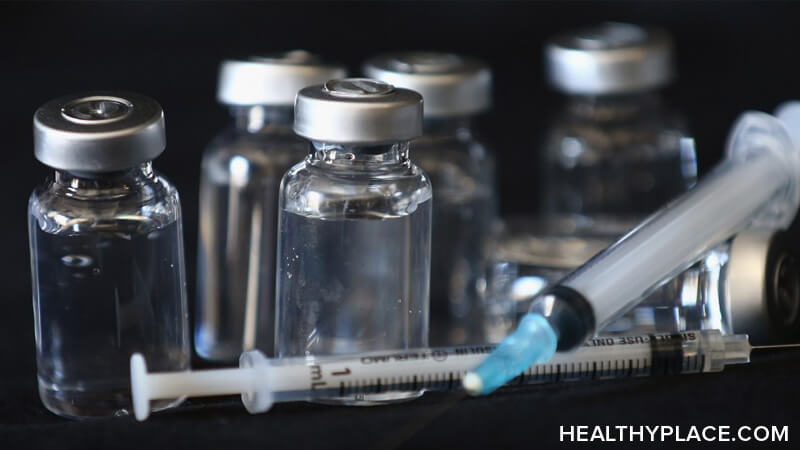Medication Options When Treatment of Major Depression Fails

Hard-to-treat depression can result in hopelessness and thoughts that your depression won't go away. However, don't give up. Once standard antidepressant medication and depression therapy options have been tried, there are still many options for the treatment of major depression.
Single Medication Options for Major Depression Treatment
There are three main options when antidepressant medication isn't working:
- Stay on the medication longer
- Increase the medication dose
- Change antidepressants and try a new antidepressant medication
Recommended antidepressant medication trial times are provided by the drug manufacturer; however, many doctors choose to switch medications before the recommended time as the time can be quite long. Taking the medication longer may increase the chances of it being effective.
Pro: The medication may start working.
Con: If the medication doesn't work, it delays trying a new treatment.
Increasing the dose is another common option. Medications work within a range of dosages and for many drugs their effectiveness increases with the dose. Your doctor may increase the dose to improve the possibility of a successful drug trial.
Pro: The medication may start working.
Con: There may be more side effects at a higher dose and if the higher dose isn't effective it delays trying a new treatment.
Switching antidepressants to a different type of antidepressant medication is also common. While all antidepressants work on the neurotransmitters (chemicals) in the brain, each one works in its own way and many on a unique subset of neurotransmitters. Just because two or three antidepressants don't work doesn't mean that none of them will. Common types of antidepressants include:
- Selective serotonin reuptake inhibitors (SSRI) such as Celexa and Prozac
- Serotonin-norepinephrine reuptake inhibitors (SNRI) such as Cymbalta and Pristiq
- Norepinephrine-dopamine reuptake inhibitors (NDRI) such as Welbutrin
- Noradrenergic and specific serotonergic (NaSSA) such as Remeron
- Serotonin antagonist reuptake inhibitors (SARI) such as Oleptro
- Tricyclic (TCA) such as Tofranil
- Monoamine oxidase inhibitor (MOAI) such as Parnate and Nardil
- Norepinephrine (noradrenaline) reuptake inhibitors (NRI) such as Strattera, an ADHD medication which is not FDA approved for depression.
Pro: New neurotransmitters are being targeted so response and side effects may be different.
Con: Some medications may have unwanted side effects.
Depression Medication Combinations
Some people respond to a combination of medications. This may be because of the additional neurotransmitter changes or because of the effect one medication has on the other. Many useful combinations are known. Most combinations include an antidepressant plus another type of medication although some people find a combination of antidepressants or a combination of non-antidepressants effective. A new National Institute of Mental Health study, COMED, is being undertaken to test the use of two different antidepressants at the same time to improve or quicken the effect.
Pro: By adding a medication more neurotransmitters can be targeted in unique ways. One medication may also improve the effectiveness of the other.
Con: Multiple medications can increase the number of side effects and may have undesirable interactions.
APA Reference
Tracy, N.
(2022, January 4). Medication Options When Treatment of Major Depression Fails, HealthyPlace. Retrieved
on 2025, November 30 from https://www.healthyplace.com/depression/severe-depression-treatment/medication-options-when-treatment-of-major-depression-fails


